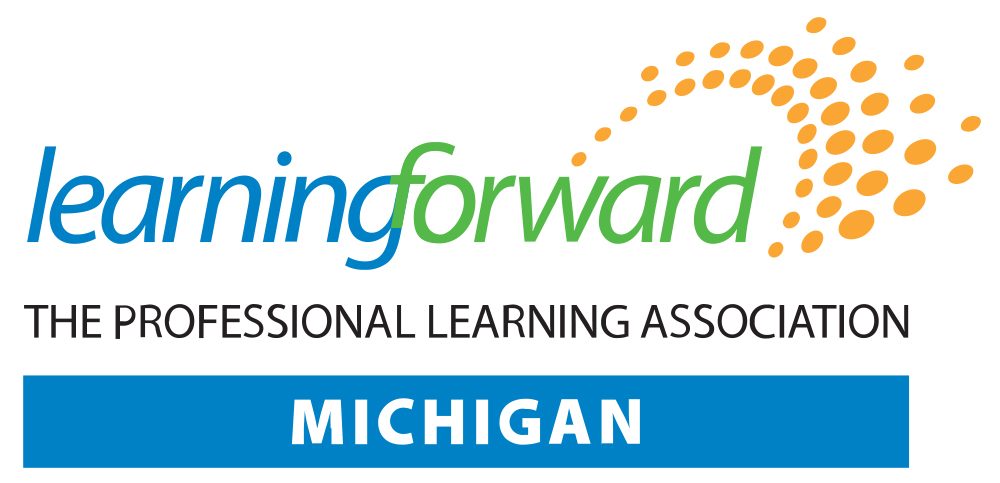Online Professional Learning
Welcome to another year of the Learning Forward MI Newsletter! The articles in this fall’s newsletter are designed to help you weigh the advantages and disadvantages of online professional learning. From web-based discussion groups to classroom simulations, games, ear-bud coaching and video capturing – online professional learning is championed for its convenience, affordability, and flexibility. But as the articles in this issue remind us, e-learning may not be for everyone, at every time.
E-learning advocates talk about the advantages of self-paced, individualized professional learning. From online workshops and webinars to graduate degree programs, online learning allows one to create a personalized learning program that is accessible 24/7. No need to find an open parking space or babysitter. Online learning is convenient and flexible. For those who are motivated and self-directed, e-learning opens the door to infinite learning opportunities.
Done poorly, however, online professional learning runs the risk of becoming a patchwork quilt of activities and experiences that further reinforce teachers’ isolation from one another and operate outside of critical school improvement goals. Without quality controls that include relevant curriculum and skillful facilitation, e-learning is no better than “one shot” professional development. The fact remains, online learning formats – by themselves – are not a magic bullet. Used wisely, however, technology can facilitate meaningful professional learning and collaboration among teachers.
Notably, the answer may be a blended solution. To accommodate varied learning needs and interests, strengths and preferences, school districts will want to provide teachers with multiple learning opportunities that combine traditional face-to-face experiences with online and hybrid learning activities. This is what Chris Dede, the Timothy E. Wirth Professor in Learning Technologies at the Harvard Graduate School of Education, calls “distributive learning”, which he describes as the convergence of traditional and electronic delivery methods.
The keys to successful online professional learning? Relevant curriculum, skilled facilitation, high levels of interactivity and individualization, varied formats for learning, and human connection. Sounds like good professional learning to me.

Our Vision
Equity and excellence in teaching and learning.
Our Mission
Learning Forward Michigan builds the capacity of leaders to establish and sustain highly effective professional learning.
Standards and Impact
Supports the implementation of standards and examines evidence to strengthen and document the impact of professional learning.
Leadership and Practice
Builds the capacity of its members, clients, partners, and staff to establish and sustain effective professional learning.
Advocacy and Policy
Advocates for policies and practices that strengthen the field of professional learning.

